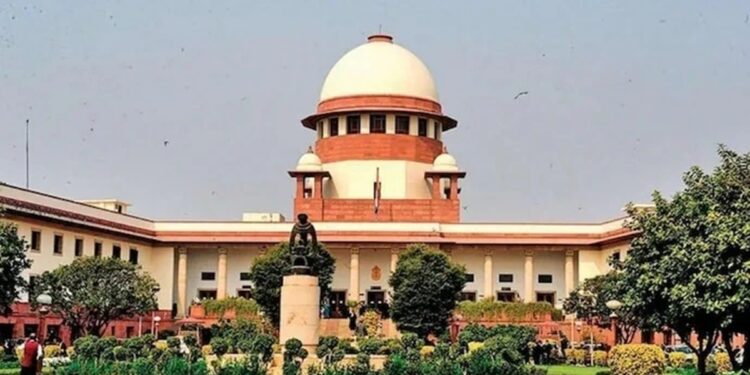A deeply concerning plea has been filed in the Supreme Court by an NGO, the so-called Rohingya Human Rights Initiative, demanding that illegal Rohingya migrants in New Delhi be given unrestricted access to schools and hospitals meant for Indian citizens. This outrageous demand, if accepted, would not only violate India’s sovereign right to regulate its own borders but also place an undue burden on its resources and citizens.
The matter was heard by Justices Surya Kant and N Kotiswar Singh on February 10th. Just last month, the Supreme Court had directed this NGO to provide details about the locations of Rohingya settlements in Delhi and the facilities already available to them. Despite this, the NGO, represented by the controversial advocate Colin Gonsalves, continued to press for special treatment for these illegal migrants. Gonsalves claimed that Rohingya ‘refugees’ are denied access to schools and hospitals simply because they lack Aadhaar cards, conveniently ignoring the fact that Aadhaar cards are meant for Indian citizens, not foreign infiltrators.
According to the NGO, these illegal migrants are currently residing in Delhi’s Shaheen Bagh, Kalindi Kunj, and Khajuri Khas areas. While those in Shaheen Bagh and Kalindi Kunj are living in slums, others in Khajuri Khas have managed to secure rented accommodations, raising serious questions about who is funding their stay.
The NGO’s plea went beyond just education and health services—it sought free-of-cost school admissions for Rohingya children, the right for them to take board and university exams without ID proof, free healthcare in government hospitals, subsidized food grains under the Antyodaya Anna Yojana, and benefits from the Food Security Act. This essentially means that an organization with foreign links is actively working to place illegal migrants on the same footing as Indian citizens, completely disregarding national security and economic stability.
This is not the first time Colin Gonsalves and his NGO have pushed an anti-India agenda. Gonsalves is the founder of the Human Rights Law Network (HRLN), which has a history of receiving foreign funds, including from George Soros’s NGO. Soros, who has been accused of using vast sums of money to interfere in sovereign nations and destabilize governments, has reportedly received $260 million from USAID for such activities. The HRLN has been involved in multiple campaigns that directly harm India’s interests, including attacks on ISKCON’s Akshaya Patra initiative, efforts to weaken Indian sedition laws, and the provision of free legal aid to Rohingya Muslims despite their illegal status in the country. Reports suggest that HRLN even received Rs 50 crores from four European churches to defend anti-CAA rioters in 2020.
Furthermore, HRLN is linked to organizations working to undermine India’s territorial integrity. Members of the Right to Food Campaign, associated with HRLN, have actively sought to question the legitimacy of the Indian judiciary. Gonsalves himself has defended individuals with anti-India leanings, including the pro-Hijab students in Karnataka and Alt News co-founder Mohammed Zubair, who was arrested for Hinduphobic tweets and FCRA violations.
The emergence of the Rohingya Human Rights Initiative also raises significant red flags. The NGO was conveniently established shortly after the announcement of George Soros’s Open Society Foundation, UNHCR, and the Canadian government’s Global Refugee Sponsorship Initiative in 2016, indicating a well-orchestrated attempt to push the Rohingya issue into India’s policy framework.
If this plea succeeds, the consequences for India will be dire. Already grappling with population pressures, economic challenges, and security threats, India cannot afford to become a global shelter for illegal migrants who expect full access to its resources. The government has a duty to prioritize its own citizens over foreign intruders. If Rohingyas are granted access to education, healthcare, and subsidized food, it will come at the cost of hardworking Indian taxpayers. The already stretched infrastructure of schools and hospitals will be further burdened, leading to longer queues, reduced services, and increased frustration among Indian citizens who rightfully deserve these benefits.

















Comments